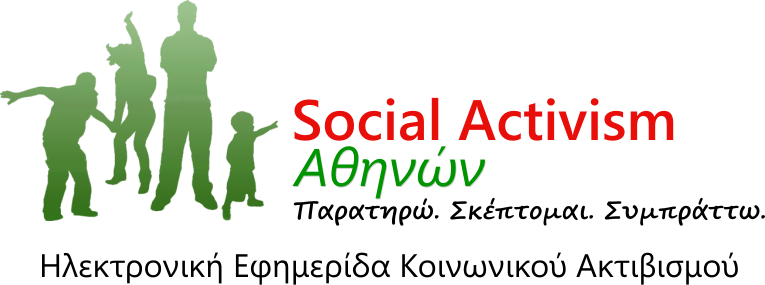Publication; SocialActivism.gr of Athens.
Edited by Katerina Nakou
Info from PC World (Mexico)
“Διδάσκουμε τα παιδιά ότι υπάρχουν τόσες λέξεις όσα και χρώματα και ότι υπάρχουν τόσες πολλές σκέψεις επειδή μέσα τους βρίσκεται ο κόσμος που γεννιούνται αυτές οι λέξεις..Και τα διδάσκουμε να μιλούν τη γλώσσα της αλήθειας, να μιλούν δηλαδή με την καρδιά τους.”
Subcomandante Marcos
Social media seems to be an effective tool for social change all around the world. Nowadays, activists tend to use blogs and sites such as Facebook, Twitter, Youtube, as ways to encourage social change. In the following article, there are some examples of how social activism has evolved worldwide.
Egypt: February 2011
The Egyptian revolution in 2011 to overthrow President Hosni Mubarak, was held in the streets of Cairo, Alexandria, and other Egyptian cities, but online activism certainly played a crucial role in the protests. Activists used Facebook, Twitter and YouTube to help organize protests to the uprising that began on January 25, 2011, according to the New York Times. The regime that the government closed almost every Internet access in the country for five days during the protests.
It Gets Better: 2010
.In 2010, journalist and author Dan Savage and his partner Terry Miller created a YouTube video in response to a number of gay teen suicides, including that of the young Billy Lucas in Indiana. In the video, the couple shared their negative experiences, stating the fact, that life improves when young people make the step from being fearful and persecuted teens, into mature adults, not afraid to express their sexual orientation. That action led to the “It Gets Better Project organization”. Savage and Miller won the support of public figures like President Barack Obama, Adam Lambert, Stephen Colbert, and Neil Patrick Harris.
Users of Facebook: 2009
Most social network has been the subject of several protests, but the biggest success of Facebook regarding this issue took place in February 2009 due to changes in terms of service.. Under pressure from its members, Facebook finally returned to its previous terms of service until the company instituted a user version approved in April 2009.
Protest on the tree: 2002-2003
Jeny Card spent 361 days since the beginning of 2002 on an ancient redwood tree in Agua Dulce, California, to protest against the logging of old forests. Her protest lasted about 12 months, she used a laptop with Debian Linux and a wireless broadband card to tell her experience on her blog.
Judging from her report, she witnessed corporate indifference, police abuse on nonviolent protesters and she experienced the dangers of lightning in the tree. Jeny Card was taken away by force in March 2003.
Iran: 2000
Twitter was considered as a key tool in terms of organization and transmission of events that followed the post-election street protests in Iran. Many called this as the “Twitter Revolution”, as they had the chance to get informed of what happened through their twitter accounts.
YouTube also played a significant role, especially after showing a video from the death of a protester named Neda Agha-Soltan. Eventually, the Ahmadinejad regime managed to suppress the protest. “Twitter”, however, tried to establish communication in the social and political chaos that followed.
Digital Chiapas: 1994
.In 1994, the spokesman of the Zapatista Army of Social Liberation, Subcomandante Marcos, organized an armed takeover of four cities in the state of Chiapas, an area which is rich in natural resources. The Army of Social Liberation protested against the exploitation of the Chiapas government since almost no benefit was addressed to the indigenous people of the region. They used email lists, Usenet groups, and numerous websites to help spread their revolutionary message.
In late 1990, the Electronic Disturbance Theater, a hacker group sympathetic to the Army, also held virtual protests attacking Government websites in Europe and Mexico, according to the New York Times.
Using online tools to further political goals of the Army of Social Liberation seems to be one of the first examples of online activism.
The outcome was effective if we take into account that at the time, Mexico was just taking its first real steps on the new technologies and still managed to achieve a good result.
.
